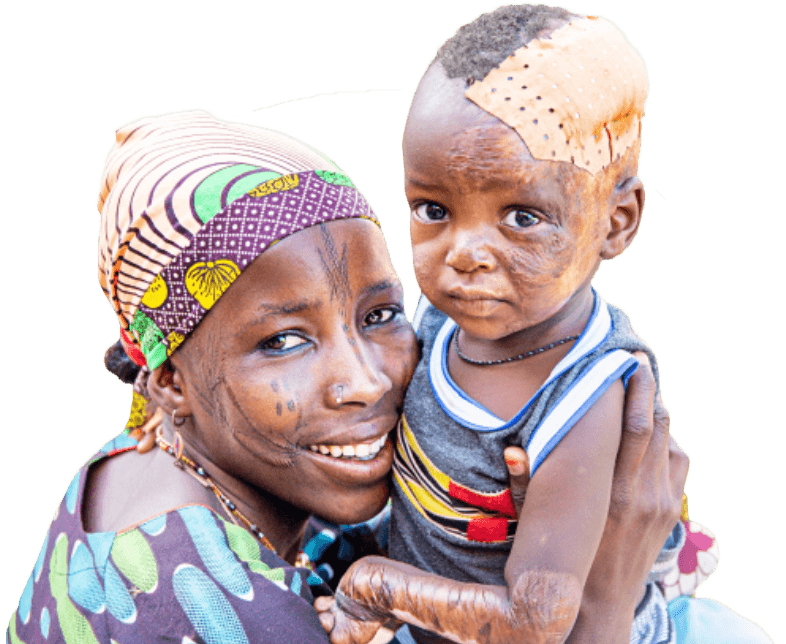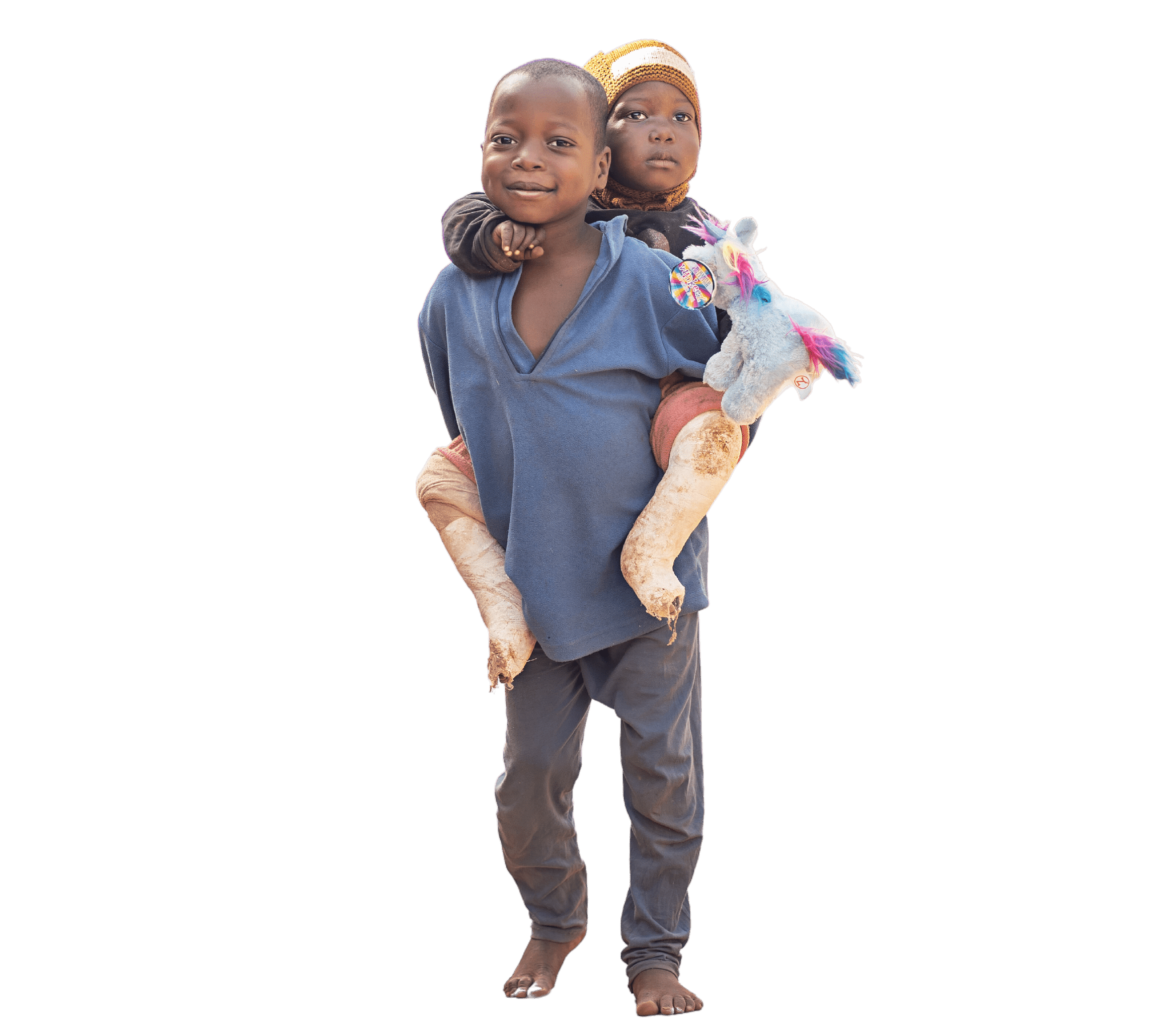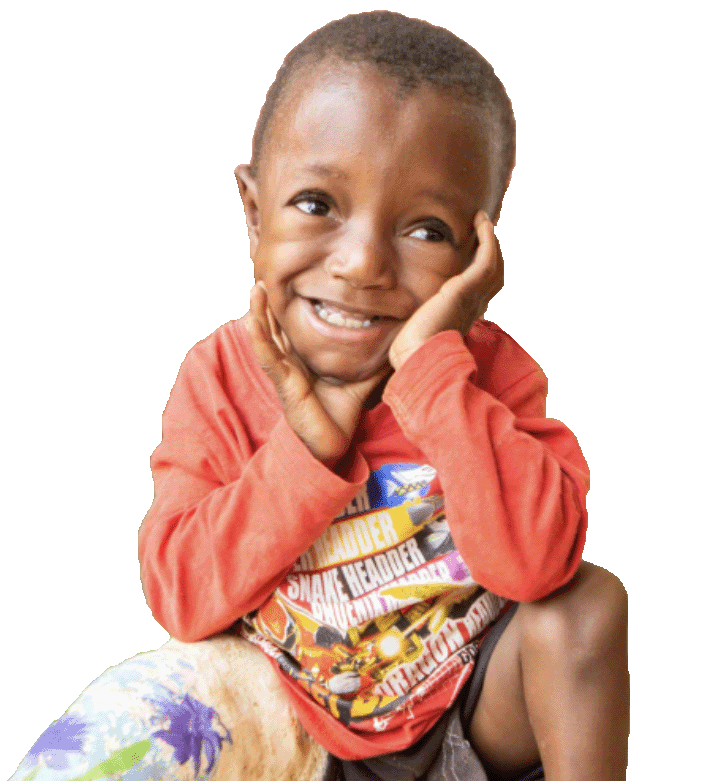Yesterday, a Patient; Today, a Doctor
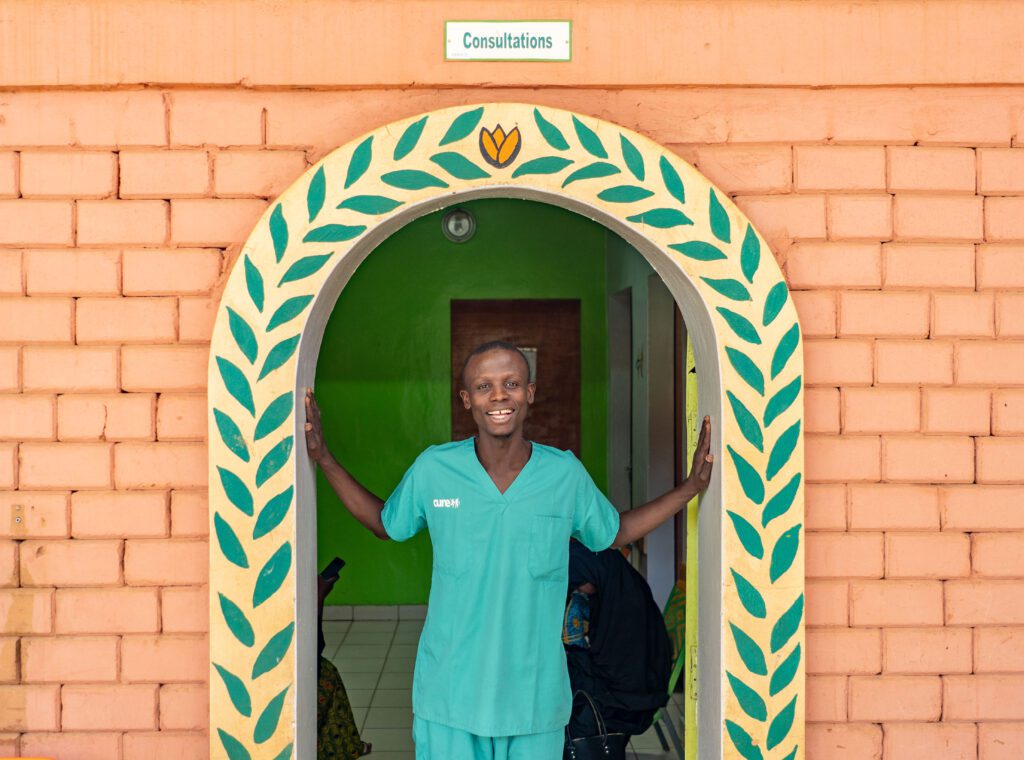
Some things in life are often inevitable, such as suffering, abandonment, and sickness. In such moments, an outstretched hand and the presence of someone to help and advise us is transformative. With neighborly love, we see how destiny can be changed into a hope that overcomes every loss. Alkassimi’s story is one of those stories.
One hot African afternoon, six-year-old Alkassimi was riding his bicycle with friends in his small village in Benin when the pedals of his bike tore the lower part of his leg.“I was just a kid then, so I didn’t know how serious the injury was, so I didn’t tell my parents,” Alkassimi recalls. His pain wouldn’t go away, and each day was more painful than the last.
After three months, Alkassimi’s limping became visible. His father asked him what happened. He couldn’t hide it anymore. His leg was swollen from his knee to the sole of his foot. Alkassimi’s family took him to a local clinic, where the doctor cleaned his wound and put a bandage on it.
“We regularly went to this dressing twice a week for a year until it healed, but even after it had healed, the wound continued to fester from the inside, so it was only then that we went for an x-ray,” Alkassimi said.
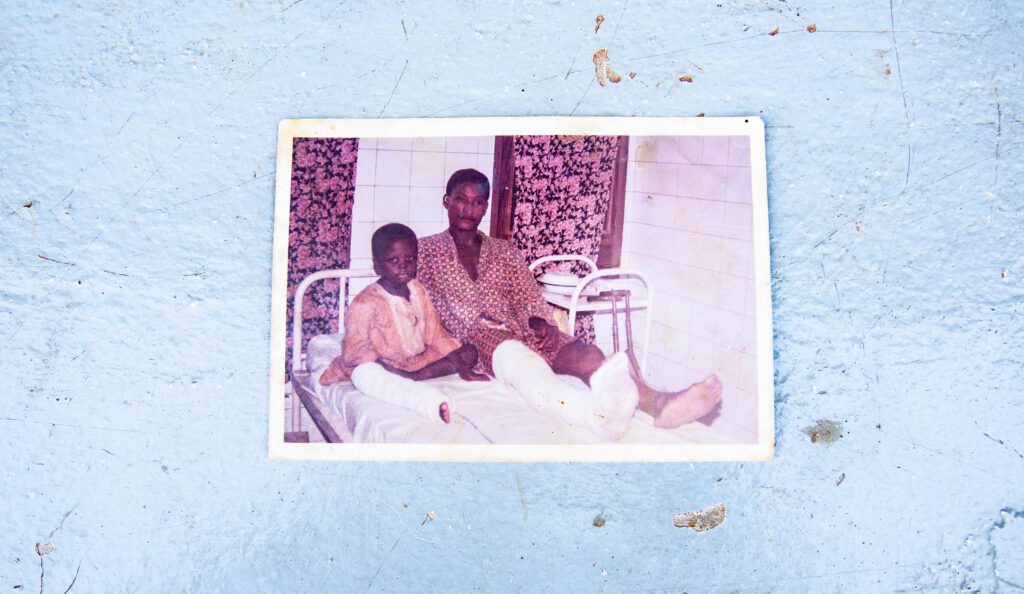
The x-ray revealed osteomyelitis—the bone in Alkassimi’s leg was infected entirely and had to be amputated, which his dad categorically refused to allow. He brought his son to the neighboring country of Togo to see another doctor who concluded the same thing. Alkassimi’s father couldn’t accept that amputation was the only option and then took his son to a traditional healer who put products on his foot daily for six months, but nothing improved.
Despite the pain, Alkassimi attended school until third grade. “In the meantime, I lived an everyday personal life, although my friends used to make fun of me when we played soccer. I learned to hide my feet with long pants. They even gave me a demon-like nickname, tshalku (Zarma language), which hurt,” Alkassimi says.
To Cut Is to Save
After secondary school, Alkassimi’s foot became puny, with only the skin stuck to the bone. He had to quit high school. He and his father visited another doctor in Benin, Florent, who said amputation was unavoidable.
An Italian-born priest and Orthopedic Surgeon, Brother Florent arrived in Benin in 1969 and dedicated his life and skills to improving healthcare delivery to Northern Benin and Togo populations. He was in his late sixties when he consulted Alkassimi at St. Jean de Dieu de Tanguiéta Hospital, a rural Catholic hospital known for performing complex surgeries.
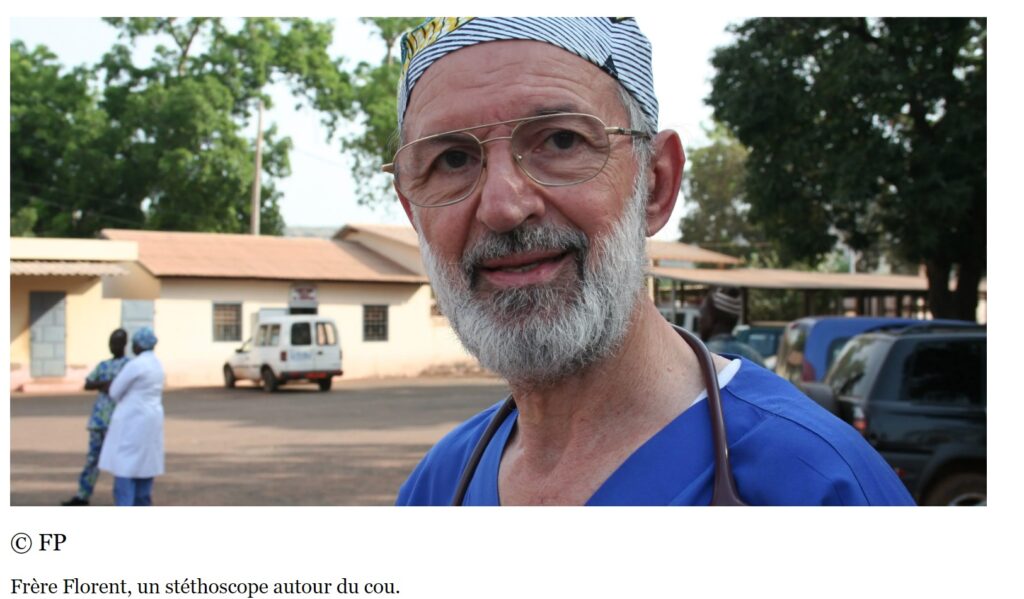
Alkassimi’s father refused and offered the same argument: “I don’t want him to have his foot cut off because I don’t want him to suffer as a beggar. Do everything possible to save his foot.”
Alkassimi, who was 16 at the time, also doubted amputation was the only solution. He asked Dr. Florent why he had to remove his leg. Florent answered, “In time, you will understand better.”
Alkassimi replied, “Okay! If it pleases God, I’ll be a doctor to understand better why my foot was removed, and I’ll do everything I can to stop children from having their feet removed.”
Dr. Florent promised Alkassimi’s parents that their son would be well cared for and could continue his studies. Three days later, the doctor amputated Alkassimi’s lower leg and foot.
After the surgery, the young boy learned to walk little by little with crutches. He recovered in the hospital for almost a year and was fitted for a prosthetic. “When I woke up in the mornings, the prosthetic hurt me, so I had to stay home. Life with a prosthesis wasn’t easy for me; it was complicated.”
He often heard other people in the streets yelling, “Come and see a plastic foot,” but he learned not to let their words bother him.
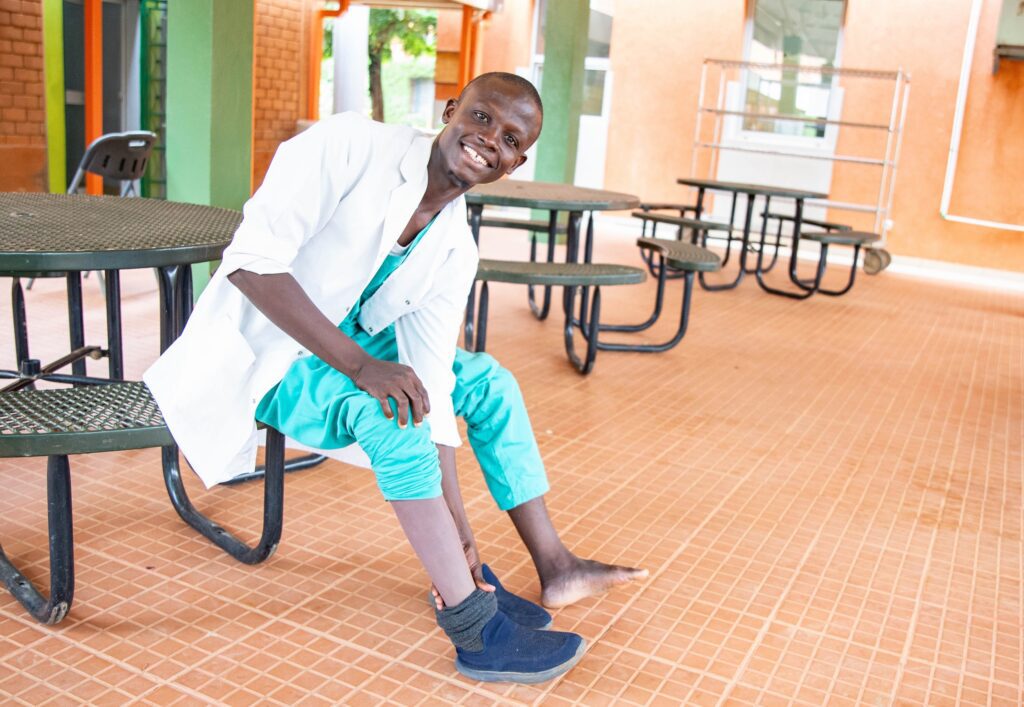
Understanding Why
Alkassimi attended high school, and Florent became a great friend and teacher. He taught him to walk correctly, ride a motorbike, and play soccer. “He integrated me into society. He did everything for me. When I graduated from high school, the doctor told me his mission was over because he couldn’t be at university to help me,” he recalls.
With his father’s support, Alkassimi came from Benin to Niger to study medicine for eight years.
“At university, I had no friends. Nobody wanted to sit beside me. At the end of my studies, the university’s rector congratulated me with many words of praise. He said he’d never seen a disabled person like me come to university and study until he got his degree, and he encouraged me.”
Sadly, Dr. Florent passed away shortly before witnessing Alkassimi’s promise to become a doctor come true. It was painful because he couldn’t personally let his mentor know what he had become, thanks to his guidance.
Fifteen years later, Alkassimi admits, “I’ve reached a stage where I understand why the doctor removed my foot. I understand that he meant well to me. I understand that the bone was destroyed and could not be fixed. That, in the end, Florent saved my life.”
Today, Alkassimi is a general practitioner at CURE Children’s Hospital of Niger (CURE Niger). Despite the physical limitations he faces, Alkassimi refuses to let his disability define him.
His condition turned him onto a mission. He advises society to stop taking children to traditional healers and not wait to come to the hospital until conditions are too severe.

At CURE, he sees many kids facing the same challenges as he did. “You always have the option to help someone disabled; it is a matter of kindness. That’s the only way to help them integrate into society,” he emphasizes. “Whatever they go through, you must tell them that life is not over. They can have a fulfilled life and accomplish many things. That’s what my friend Florent showed me, for which I will forever be grateful. I can do the same for the kids I consult here at CURE.”
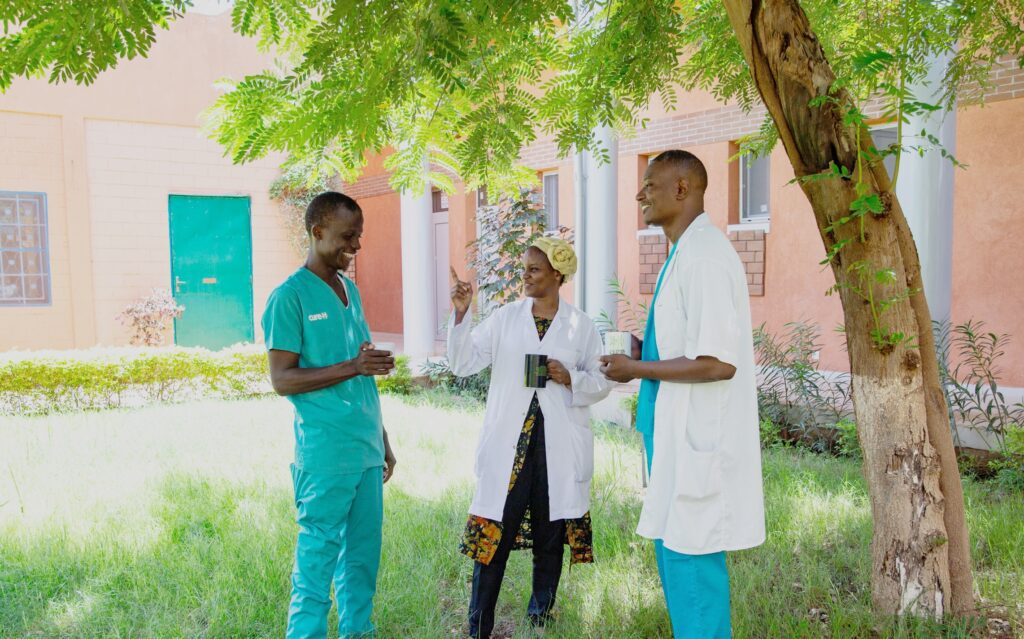
Florent’s help and dedication in Alkassimi’s life prove that loving those who are despised and rejected because of their disabilities saves lives, restores their dignity, and gives them purpose.
You Can Make an Impact With CURE
Did you know generous supporters like you provide every CURE patient with surgical care at no cost to their families? Make a gift to help a child today.
About the CURE Children’s Hospital of Niger
CURE Niger has been a place of hope since opening its doors in 2010. Ours is the first and only hospital in the country to provide Christ-centered care and charitable surgeries for children with treatable disabilities. Our teaching hospital has 58 beds, two operating rooms, and an outpatient clinic. In addition to world-class medical care, our team ministers to the emotional and spiritual needs of our patients and their communities.
